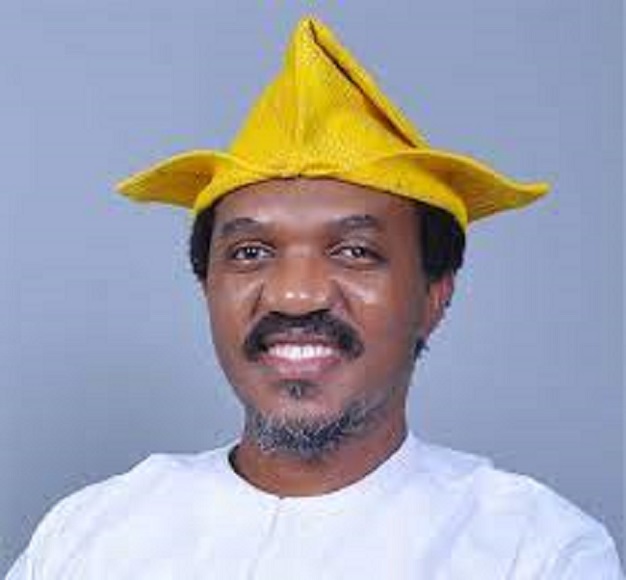A former Special Adviser on Energy to the Ondo State Government, Engr Tunji Light Ariyomo, has identified energy diversification as a fundamental contribution to sustainable development, saying it will also help to create jobs and boost local economies
Ariyomo stated this while delivering a lecture on ‘Energy Self-sufficiency as an Important Key to Nigeria’s Economic Development and Sustainability’ at the 2023 distinguished public lecture of the Nigerian Society of Engineers, Ondo State chapter held in Akure, the state capital
The energy expert who advocated for locally made crude oil refineries with technology components that are organic to Nigeria stressed the need to refine Nigeria’s crude oil within the country for local consumption and export.
According to him, “Nigeria must own and produce most inputs required in its energy industry, domesticate the required technologies, and diversify its energy mix by investing in renewable energy sources while ensuring it locally produces critical components associated with solar, wind, and hydroelectric power.”
Ariyomo said ‘We want greater growth rate. We want increased jobs for our teeming youths. We can only do these if we turn the odds against us into opportunities.
“That the nations in West Africa have become the destination for our smuggled fuel is a potential advantage if we decide to make them our legitimate market and factor their needs into our overall production plan.
“We should dominate the regional market. Nigeria should produce most of what is in demand for consumption in West Africa.
“The nation’s leadership must craft deliberate strategic development plans to make this possible.
“We will continue to hold the short end of the stick and be gravely disadvantaged on the balance of trade if we continue on the precarious path of being a dependent consumption nation. It only portrays us as unthinking people.
“Of course, modernizing our energy infrastructure is crucial. This includes gas distribution infrastructure, upgrading transmission and distribution networks for power, improving grid reliability, and reducing energy losses.
“Promoting energy efficiency practices in industries, transportation, and households can reduce overall energy demand and improve sustainability.
“Expanding access to reliable electricity in rural and underserved areas can spur economic development and reduce poverty.
“Implementing clear and stable energy policies, as well as regulatory reforms, can attract investments and create an enabling environment for the energy sector to thrive,” he said
While emphasising that energy is the lifeblood of any modern economy, Ariyomo noted that without a stable and sufficient supply of energy, a nation’s economic development can be severely hindered.
On job creation, the renowned engineer advised the federal government to identify four million viable small-scale businesses along the country’s strategic national needs and support them with entrepreneurship loans – targeting local consumption and exports.
“This is where the nation needs to be creative. There is no money. Yet we need money. We must get that money somehow but ensure it is targeted at production.
“The four million businesses I just mentioned for instance will yield 24 million new jobs if each of those businesses can employ a minimum of just five people. Five people with the owner would make six jobs per business
“This is a pattern that India has employed to accelerate growth in sharp contrast to the preference of communist China for large state corporations that employ tens of thousands of people. As a capitalist democracy, Nigeria can in fact leverage both examples.
“Nigeria’s pursuit of energy self-sufficiency is not just a matter of economic growth; it is a vital step towards ensuring the nation’s long-term sustainability, resilience, and survival.
“Nigeria either produces or perishes. With the right strategies, investments, and a collective commitment and collaboration involving government, industry, academia, and civil society, Nigeria can unlock its full potential and provide a better future for its citizens.”
He encouraged local design of micro, mini and major refineries under the supervision of experienced engineers, scientists, and technologists.
“We are likely to be shocked at the capacity of the average welder to fabricate distillation units, catalytic conversion units, and storage tanks!
“As engineers, we should remember that a refinery at its crudest form is basically drums sectioned into columns, a temperature filter or separator, and a fire or heat source.”
The Chairman of the Akure branch of the NSE, Engr. Stephen Bolawole, in his remarks, charged engineers to position themselves so as to be able to implement the suggestions of the guest speaker.
Dignitaries at the Public Lecture included the National President of the Nigerian Society of Engineers, Engr. Tasiu Sa’ad Gidari-Wudil, FNSE, the immediate past President of the Society, Engr. Ali Rabiu, former Registrar of the Council for the Regulation of Engineering in Nigeria (COREN), Engr Kamila Walik,
Also in attendance, members of the national executive council of the NSE, Engr Okudugha Dauda Aluya, His Royal Majesty Oba Victor Adetona, the Owa of Ogbagi Akoko, His Royal Majesty, Oba Joel Daodu, the Oniyani of Iyani, His Majesty, Prof Oba Adebisi Akinola, the Dean School of Engineering, Olusegun Agagu University of Science and Technology Okitipupa and Prof. Adenike Oladiji, the Vice Chancellor of the Federal University of Technology Akure, among others.
READ ALSO FROM NIGERIAN TRIBUNE




